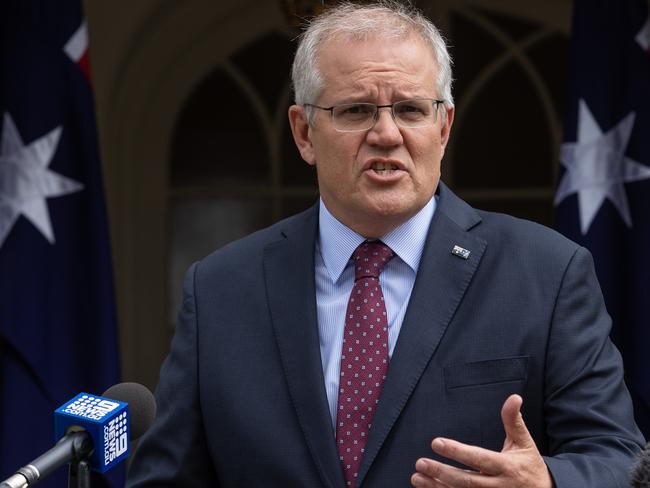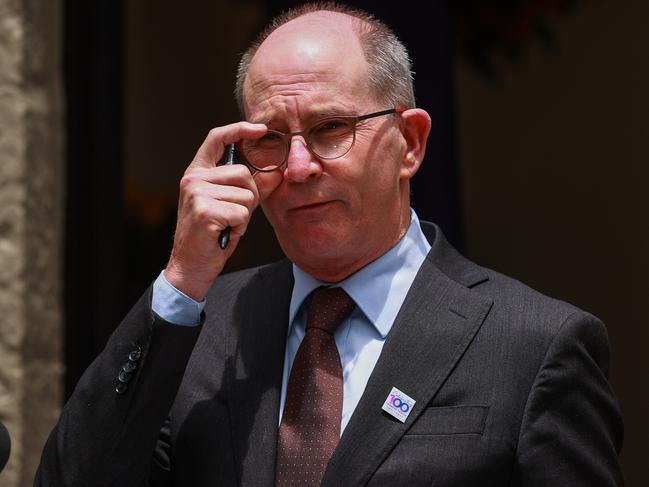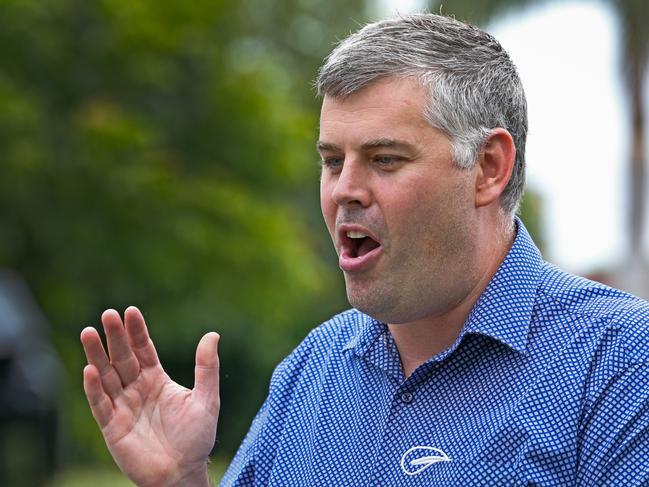Covid Qld: Close contact definition changes, RAT to overtake PCR
The definition of a close contact is expected to change to avoid crippling shutdowns, while rapid testing is set to overtake PCR tests.
QLD Coronavirus News
Don't miss out on the headlines from QLD Coronavirus News. Followed categories will be added to My News.
Only Queenslanders living under the same roof as a Covid-19 case would be considered a close contact and the use of rapid antigen tests will surpass the traditional PCR swab amid a proposed nationwide pandemic “gear change”.
Prime Minister Scott Morrison announced a snap meeting of National Cabinet would be held today after an explosion of cases led to a near collapse of Covid-19 PCR testing capabilities in many states.
Cumbersome travel testing rules had also added to the testing crush, with Queensland scrapping the need for a PCR test for hotspot arrivals in favour of a rapid antigen test from January 1.
In Queensland, the surge in cases has led to thousands being forced into quarantine due to blanket close contact rules imposed on busy venues.
A total of 18,242 Covid-19 cases were recorded nationally yesterday – 1589 in Queensland – however just 126 people are in intensive care, none of them in Queensland.

Mr Morrison said National Cabinet would be brought forward from January 7 to discuss a new definition of a close contact as existing rules were an impractical way to live with the virus when the volume of cases was so high.
“We can’t just have everybody being taken out of circulation just because they happen to be at a particular place at a particular time,” he said.
Currently, close contact rules can affect a range of people in different settings and has resulted in multiple businesses – particularly in the hospitality sector – closing due to lack of staff or operating at severely reduced capacity.
A close contact, under a definition put forward by Australia’s Chief Medical Officer, would include a high threshold of someone who has spent more than four hours with a positive case in a house or care facility setting.
Restaurant and Catering Association chief executive Wes Lambert said the industry was “overwhelmingly grateful” for the potential redefinition, after existing rules caused mass closures of venues.
National Cabinet will also discuss more consistent test policies, including the use of rapid antigen tests (RAT) in the first instance.
Chief Medical Officer Professor Paul Kelly said authorities were trying to “make sure that people who are queuing really need that (PCR) test and are at a higher likelihood of being positive”.
“Frankly, if you have to wait for eight hours in (a PCR testing) queue and then 72 to 96 hours to get a result, it’s not fulfilling any useful public health function and it is delaying proper clinical care,” he said.
Mr Morrison said procuring RAT kits – for purposes such as contact testing – will remain a state responsibility, with the Commonwealth to split the costs.
The Federal Government is in charge of providing RAT kits in aged and disability care, with the stockpile to grow by six million tests to 10 million “very soon”.
Mr Morrison also announced an extra $375 million for another 50 million tests.
Police Minister Mark Ryan, asked if Queensland would secure rapid tests, said the state was keeping its options open.

Victoria and NSW, which have both reported difficulty in procuring bulk RAT kits, have respectively purchased 34 million and 50 million tests to hand out free.
Australian Medical Association vice-president Chris Moy said the peak body had been calling on the government since the start of the reopening plan to ensure there was access to RAT kits.
“With PCRs being rendered less useful, RATs (along with slowing down movement) becomes key,” he said on Twitter.
“But public need RATs now – and we don’t care how – and instructions on how we use them.”
Meanwhile, Premier Annastacia Palaszczuk announced via social media that travellers from Covid-19 hot spots would now only need to get a rapid antigen test – which can be taken at home – in the 72 hours before they entered Queensland.
The new testing edict will be in effect from January 1.
The move came after days of pleas from the NSW Government for Queensland to scrap its PCR test requirement, as they grapple with huge queues at testing sites.
Queensland Tourism Industry Council chief executive Daniel Gschwind said the decision removed a huge inconvenience for people wanting to come to Queensland.
“It’s a very dramatic and definitive step towards the long-term recovery of our industry,” he said.
Chief Health Officer John Gerrard said travellers would have to declare in their border pass application that they had taken the rapid test.
“It is an honesty system, but to make a false declaration is a criminal offence,” he said.
Police Commissioner Katarina Carroll warned travellers would be slapped with fines if they lied on the declaration form.
When 90 per cent of Queensland is double-vaccinated, the rapid antigen testing requirement will be removed altogether for vaccinated travellers.
More Coverage





